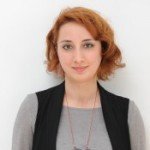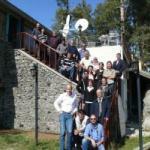"From the Classroom to the News Room"
BIA: Positive Discrimination, Follow-Up and Visibility
The training programme for young journalists, "From the Classroom to the News Room", organised by the IPS Communications Foundation, has been taking place at Bilgi University Campus.
IPS Communications Foundation president Nadire Mater and general secretary Ertugrul Kürkcü, bianet childrens' rights editor Erhan Üstündag and human rights editor Tolga Korkut talked about the Independent Communication Network (BIA) and discussed rights journalism.
Kürkcü: "Changing the centre"
Ertugrul Kürkcü recounted that BIA was created in order to offer a network for those "who are looking for a different kind of news". Unlike the mainstream media, the priority lay with monitoring attitudes towards rights. Kürkcü said that they had a claim to "founding a different type of news-making" and that this was based on "changing the centre".
BIA was founded in 1997, when democratic societies such as the Union of Chambers of Turkish Engineers and Architects (TMMOB) and the Union of Turkish Physicians (TTB) were expressing a need for a network which would bring together local media in order to make the voices of rights organisations heard and publicise rights violations.
Kürkcü said, "Even with the dominance of today's production relations, we can create a mechanism which comes from the people; we created it, we proved it."
He offered the following advice to the future journalists at the training programme: "The mainstream media has got enough journalists. It is the local/regional media which can employ you. You may have very different experiences there."
Korkut: Voices for the silent
Giving examples of rights journalism from BIA's website bianet, Tolga Korkut warned of only reporting human rights violations. Rather, there should also be news items on how rights were used and positive results.
Korkut pleaded for positive discrimination, to make the voices of the silent heard, the poor, the displaced, women and children: "If one rights violation is ignored, then others also become invisible".
He advised the trainees to use rights organisations and NGOs as useful sources of information.
Üstündag: No discriminatory language
Erhan Üstündag introduced the bianet news website and the daily routine of website journalism. He emphasised that bianet was careful to avoid discriminatory language in its articles. He added, "bianet has been reporting on women's issues for years. The mainstream media has just begun to follow this trend."
Mater: Need for a woman's perspective
Nadire Mater drew attention to the fact that women, who represent fifty percent of society, were not represented in news items. Experts asked to interpret were usually men, when really, "we could ask women when writing about the army and men when writing about beauty issues."
Arguing that it was important to give unrepresented women a voice, Mater gave the example of the BBC newsrooms, where various sections of society were represented.
A representation of variety also allows different perspectives to be reflected: "Women must be used as information sources in news items, as well as the subjects of news. News concerning women must also be looked at from a woman's perspective." (AÖ/AG)







